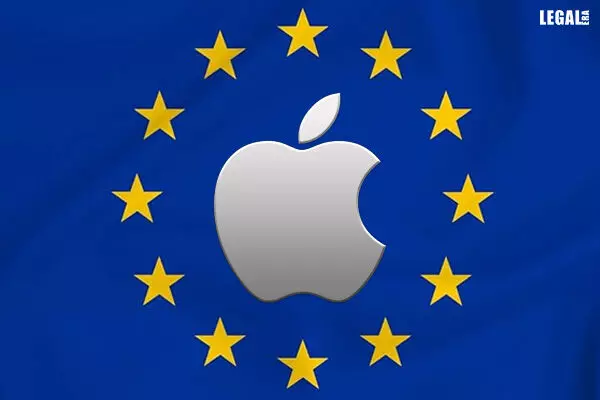- Home
- News
- Articles+
- Aerospace
- Artificial Intelligence
- Agriculture
- Alternate Dispute Resolution
- Arbitration & Mediation
- Banking and Finance
- Bankruptcy
- Book Review
- Bribery & Corruption
- Commercial Litigation
- Competition Law
- Conference Reports
- Consumer Products
- Contract
- Corporate Governance
- Corporate Law
- Covid-19
- Cryptocurrency
- Cybersecurity
- Data Protection
- Defence
- Digital Economy
- E-commerce
- Employment Law
- Energy and Natural Resources
- Entertainment and Sports Law
- Environmental Law
- Environmental, Social, and Governance
- Foreign Direct Investment
- Food and Beverage
- Gaming
- Health Care
- IBC Diaries
- In Focus
- Inclusion & Diversity
- Insurance Law
- Intellectual Property
- International Law
- IP & Tech Era
- Know the Law
- Labour Laws
- Law & Policy and Regulation
- Litigation
- Litigation Funding
- Manufacturing
- Mergers & Acquisitions
- NFTs
- Privacy
- Private Equity
- Project Finance
- Real Estate
- Risk and Compliance
- Student Corner
- Take On Board
- Tax
- Technology Media and Telecom
- Tributes
- Viewpoint
- Zoom In
- Law Firms
- In-House
- Rankings
- E-Magazine
- Legal Era TV
- Events
- Middle East
- Africa
- News
- Articles
- Aerospace
- Artificial Intelligence
- Agriculture
- Alternate Dispute Resolution
- Arbitration & Mediation
- Banking and Finance
- Bankruptcy
- Book Review
- Bribery & Corruption
- Commercial Litigation
- Competition Law
- Conference Reports
- Consumer Products
- Contract
- Corporate Governance
- Corporate Law
- Covid-19
- Cryptocurrency
- Cybersecurity
- Data Protection
- Defence
- Digital Economy
- E-commerce
- Employment Law
- Energy and Natural Resources
- Entertainment and Sports Law
- Environmental Law
- Environmental, Social, and Governance
- Foreign Direct Investment
- Food and Beverage
- Gaming
- Health Care
- IBC Diaries
- In Focus
- Inclusion & Diversity
- Insurance Law
- Intellectual Property
- International Law
- IP & Tech Era
- Know the Law
- Labour Laws
- Law & Policy and Regulation
- Litigation
- Litigation Funding
- Manufacturing
- Mergers & Acquisitions
- NFTs
- Privacy
- Private Equity
- Project Finance
- Real Estate
- Risk and Compliance
- Student Corner
- Take On Board
- Tax
- Technology Media and Telecom
- Tributes
- Viewpoint
- Zoom In
- Law Firms
- In-House
- Rankings
- E-Magazine
- Legal Era TV
- Events
- Middle East
- Africa
Apple Modifies App Store Policy After European Commission Probe

Apple Modifies App Store Policy After European Commission Probe
The two new fee structures will replace the reduced commission for all digital goods and services sold
After the European Commission charged Apple for breaching the bloc's tech rules, the iPhone maker has altered its policy in the European Union to allow developers to communicate with customers outside the app.
In June, the Commission held that under most business terms, Apple allowed steering only through ‘link-outs. This meant that app developers could include a link that would redirect the customer to a web page where the he could end the contract.
Apple explained that now the developers can communicate and promote offers available on their website, from within the app.
However, it will introduce two new fee modules - an initial 5 percent acquisition fee for new users and a 10 percent store services fee for sales made by app users on any platform within the 12 months of the app’s installation.
Currently, the iPhone maker charges three types of payments: core technology fees for less than 1 percent of apps, a reduced commission for all digital goods and services sold through the App Store, and an optional fee for the payments and commerce services.
The Commission had criticized the fees charged by Apple for facilitating the initial acquisition of a new customer by developers via the App Store.
The charges against Apple are the first by the Commission under its landmark Digital Markets Act (DMA), which reins in the power of Big Tech. the violations could result in a 10 percent fine for a company's global annual turnover.
However, Apple has said it has been communicating with the European Commission and the changes were made in response to the June directions.



